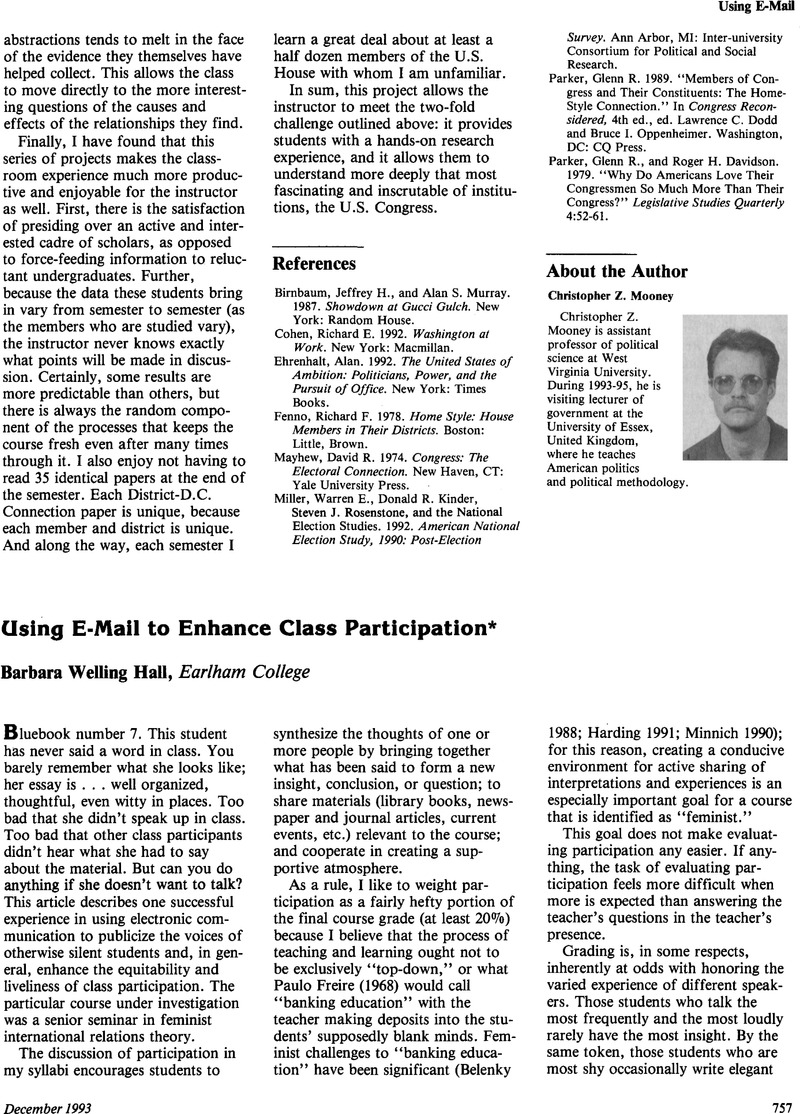Crossref Citations
This article has been cited by the following publications. This list is generated based on data provided by Crossref.
BOVEY, NADIA SPANG
1995.
Computer networks for political scientists: A guide to resources and research techniques1.
European Journal of Political Research,
Vol. 27,
Issue. 4,
p.
401.



